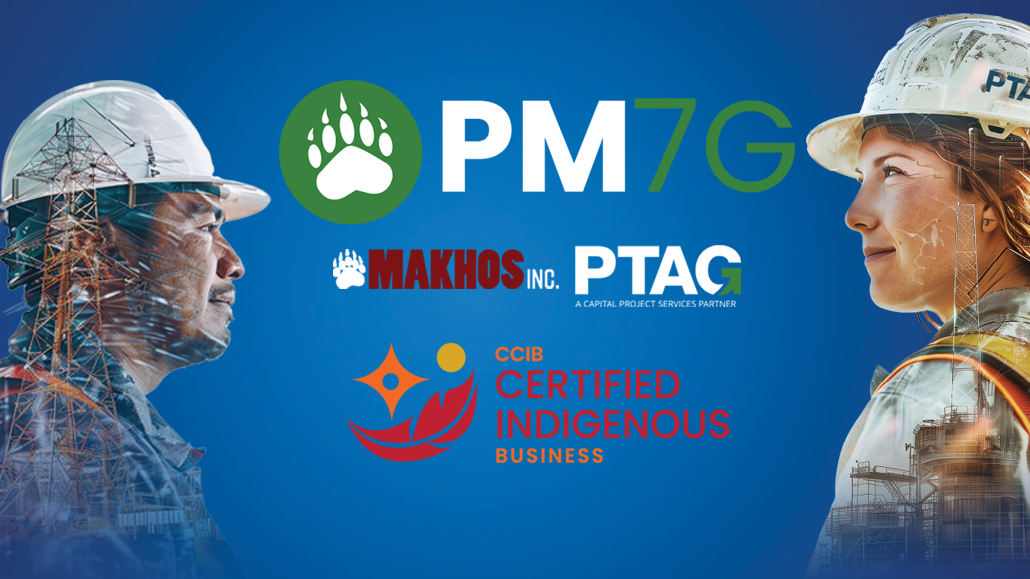PM7G Selected by Ontario Power Generation as Vendor of Record for Project Controls and Management Services

Toronto, Canada – April 14, 2025 – PM7G, a joint venture between PTAG Inc. and Makhos Staffing Solutions, has been selected by Ontario Power Generation (OPG) under a multi-year Vendor of Record (VOR) agreement to provide Project Controls, Project Management, and Construction Management services.
PM7G, a Certified Indigenous Business recognized by the Canadian Council for Indigenous Business (CCIB), combines deep technical expertise with a strong commitment to workforce development and Indigenous engagement. The joint venture leverages PTAG’s extensive experience managing large-scale infrastructure projects and Makhos’ leadership in professional services and inclusion to deliver high-quality support for complex capital projects.
Through a Managed Task delivery model, PM7G offers a range of services including project management, integrated schedule development and review, project readiness assessments, quantitative risk assessments (QRAs), cost estimation, and facilitation of procedural and process documentation. These services are designed to support collaborative project environments with a focus on performance, accountability, and continuous improvement.
“Our team is proud to bring a blend of technical expertise, Indigenous engagement, and a commitment to collaborative infrastructure delivery,” said Michael Dubreuil, Managing Partner at PTAG. “This agreement represents an important step forward for PM7G and reflects the value of our integrated approach.”
PM7G’s leadership team brings decades of experience supporting utilities and infrastructure projects across North America. The joint venture applies industry-recognized practices—such as advanced collaboration and integrated delivery models—to help optimize project execution across safety, quality, and cost performance benchmarks.
“PM7G represents the strength of partnership—bringing Indigenous leadership and industry expertise together to deliver meaningful outcomes,” said Bob Watts, Director at Makhos. “We are focused on creating sustainable economic pathways and growing Indigenous participation in the infrastructure sector.”
In addition to delivering technical services, PM7G is committed to building Ontario’s future project workforce through strategic partnerships with institutions such as Ontario Tech University, Centennial College, and Lambton College. The firm is also actively engaged in customized training initiatives aimed at increasing Indigenous participation in project delivery careers.
“We are excited to contribute to the delivery of complex infrastructure projects in Ontario through this agreement,” said Bruce Burwell, Executive Sponsor at PTAG. “PM7G brings proven methods in construction management, risk mitigation, and digital project controls to every engagement.”
About PM7G
PM7G is a joint venture between PTAG Inc. and Makhos Staffing Solutions, combining expertise in large complex project management, project controls, and construction management with a strong focus on Indigenous economic participation and workforce development. As a Certified Indigenous Business, PM7G delivers collaborative, innovative, and cost-effective solutions for infrastructure projects in the power & utilities, nuclear, and heavy industrial sectors.
For further information, please contact:
Andrew Grant
PM7G and OPG VOR Agreement Commercial Lead
Andrew.Grant@PM7G.com +19054745660


































